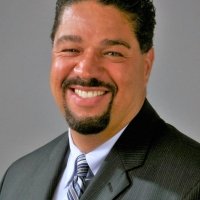The Wilson Center today announced that noted population-environment expert Roger-Mark De Souza will join the Wilson Center as Director of Population, Environmental Change, and Security. De Souza will lead programs on reproductive and maternal health, environmental security, and livelihoods, including the Center’s Environmental Change and Security Program and the Global Health Initiative. He will start on April 22, Earth Day.
“Roger-Mark De Souza brings more than 20 years of experience to the intersection of population, health, and the environment. With the world’s demand for natural resources dramatically increasing, we must create new strategies to avoid massive national security implications,” said Jane Harman, director, president, and CEO of the Wilson Center. “We are thrilled to attract someone with Roger-Mark’s experience.”
As vice president of research and director of the climate program at Population Action International, De Souza provided strategic guidance, technical oversight, and management of PAI’s programs on population, gender, climate change, environment, and reproductive health. From 2007 to 2010, as the director of foundation and corporate relations at the Sierra Club, he led a multi-million dollar foundation and corporate fundraising program. Prior to working at the Sierra Club, he directed the Population, Health, and Environment program at the Population Reference Bureau for 10 years, where he designed and implemented research, communications, and capacity-building projects in the United States, Africa, Southeast Asia, and Latin America and the Caribbean.
Listen to De Souza Speak About Social Resilience to Climate Change at the Wilson Center (3/18/13)
De Souza will be part of the Wilson Center’s Global Sustainability and Resilience Program, directed by Blair A. Ruble.
Ruble said, “Roger-Mark’s expertise on sustainable development and women’s health makes him an ideal fit for the Global Sustainability and Resilience Program. His proven track record of communicating research to policymakers and practitioners, in practical ways all over the world, will contribute to GSRP’s goal of building networks of resilience that support local communities in the face of global change.”
“We are at a unique moment in time when critical population, environmental, and security trends combine to impact not only our State rooms and boardrooms, but also our living rooms,” said De Souza. “I’m delighted to join the Wilson Center because through its independent research, open dialogue, and actionable ideas, the Center is a voice of vision and practical change, making a difference to policies, programs, and lives in real and meaningful ways.“
De Souza holds graduate degrees in international relations and development policy from George Washington University and the University of the West Indies. Born and raised in the Caribbean, he lives in Virginia with his wife, two teenage sons, and two dogs.







